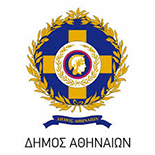| Projects: |
She is very widely known for her 8 novels which are:
The Life of Ismail Ferik Pasha 1989, I shall sign as Loui 1993, Eleni or Nobody 1998, The Century of Labyrinths 2002, Silent, deep Sea 2006, Jouda ’s Fires and Oedipous ’s Ashes 2009, The ultimate humiliation 2015 and her last autographical novel Emmanuel and Ekaterini, tales that are not tales, 2022.
She has also published two collections of short stories, two collections of essays, and poetry.
She had collaborated with the famous film director Theo Angelopoulos as script consultant at his last, uncompleted because of his death, film “The other sea”.
Her books are printed by Kastaniotis Editions.
She lives in Athens with her husband Elias Kouvelas.
TRANSLATIONS
Rhea Galanaki’ s books, mostly her novels, have been translated in 17 languages (English, French, German, Spanish, Italian, Dutch, Swedish, Czech, Bulgarian, Lithuanian, Turkish, Arabic, Chinese, Hebrew, Albanian, Catalan and Ukrainian).
Specifically:
The life of Ismail Ferik Pasha in 10 languages: in English (1996 UNESCO Publishing Paris – Peter Owen London and Chester Springs, Great Britain, 1996), in French (1992 Actes Sud, 2019 Editions Cambourakis), in German (2001 Suhrkamp), in Duch (1998 Styx Publications), in Turkish (1999 Ilatisim), in Albanian (2010 Botimet TOENA), in Bulgarian (2001 Lada editions), in Hebrew (2006 Carmel editions), in Arabic (2005 Al Ahram editions), in Ukranian (2020 Folio Editions).
Eleni, or Nobody in 7 languages: in Swedish (2007 Soderstroms), in English (2003 Hydra Books Northwestern University Press), in French (2018 Editions Cambourakis), in Italian (Helena Nessuno, Crocetti Editore), in Spanish (2001 metafora editiones), in Czech (2003 One Woman Press), in Chinese (2007 Locus).
Silent, Deep Sea in 3 languages: in Dutch (2012 TA GRAMMATA editions), in Turkish (2009 Ithaki editions), in Lithuanian (2008 Tyto Alba editions).
The Ultimate Humiliation in 2 languages: in French (2016 editions Galaade and 2017 Editions Cambourakis in paperbach), in Catalan (2019 Tigre de Paper editions).
I shall sign as Loui in English (2000 Hydra Books Northwestern University Press).
The century of Labyrinths in Italian (2007 editioni e/o).
An almost blue hand (a collection of short stories) in Hebrew (2022, Carmel Publishing House).
Albeit Pleasing - Trebaze Puvabna (a collection of poems) bilingual edition in Czech and English (1998 One Woman Press editions).
Rhea Galanaki’s Poems and Short Stories have been included in Anthologies and Magazines in several languages.
CRITICS have largely appreciated all her novels because, by her elaborated and modern way of writing, Rhea Galanaki has touched subjects such as double identities, the division between two countries, the desire and the impossibility of the “nostos to Ithaca”, the complicated meaning of nationality, the grate problem of feminine gender in Greece, and the perpetual human drama through war or authoritative societies. Although she is considered as the renovator of “historical novel” in modern Greek Literature, at the same time she tries to investigate contemporary Greek wounds - for example the deep changes in Greek society because of the economic crisis, or the new return of fascism. Moreover, Rhea Galanaki has the unique and courageous way to connect in all her books the human adventure with Greek mythology, with contemporary myths or ideas, or with some main historical events - proposing sometimes a different point of view or a new interpretation, but always in a modern humanistic aspect.
Important critical articles and essays on Rhea Galanaki ’s works, or interviews with her, have been published not only in all the most significant Greek newspapers and literature magazines, but also in Le Monde des Livres, La Croix, Livres Hebdo, Le Soir, Medipart.fr., Frankfurter Allgemeine Zeitung, Sudwest Presse, Frankfurter Rundschau, the T. L. S. (on the occasion of Olympic Games), Al- Ahram, El Temps, and many others.
Academic research and lecturing in Greece or abroad, have very often focused on her distinguished work, especially on her novels.
|
| Awards: |
2022, Rhea Galanaki was decorated by the President of the Greek Republic Katerina Sakellaropoulou with the “Gold Gross of the Order of Beneficence” for her contribution to Greek Letters (she is the first Greek woman novelist decorated by this Medal).
2019, “The Balkanika Literary Award 2018” for the novel The Ultimate Humiliation.
2017, the novel The Ultimate Humiliation was shortlisted at France for the “Mediterranean Prize for foreign literature”.
2006, The “National Book Center Readers’ Prize” for the novel Silent, deep sea.
2005, The “Greek State Prize” for the collection of short stories An almost blue hand.
2003, The “Greek Academy Prize” for the novel The Century of Labyrinths.
1999, The “Greek State Prize” for the novel Eleni or Nobody (the same novel, Eleni or Nobody, was nominated at 1999 for the European Prize “Aristeion” and it was included in the final three candidates).
1994, the novel The life of Ismail Ferik Pasha was the first Greek novel included, after the Second War, at “UNESCO’s Collection of Representative Works”.
1987, the Cretan award “Nikos Kazantzaki’s Prize”.
|







